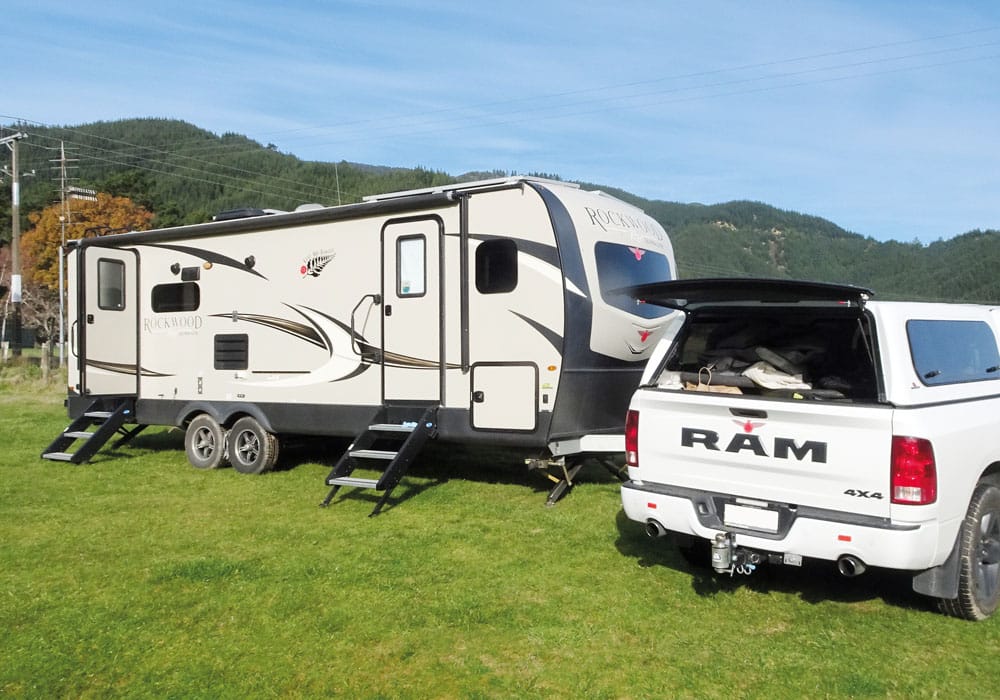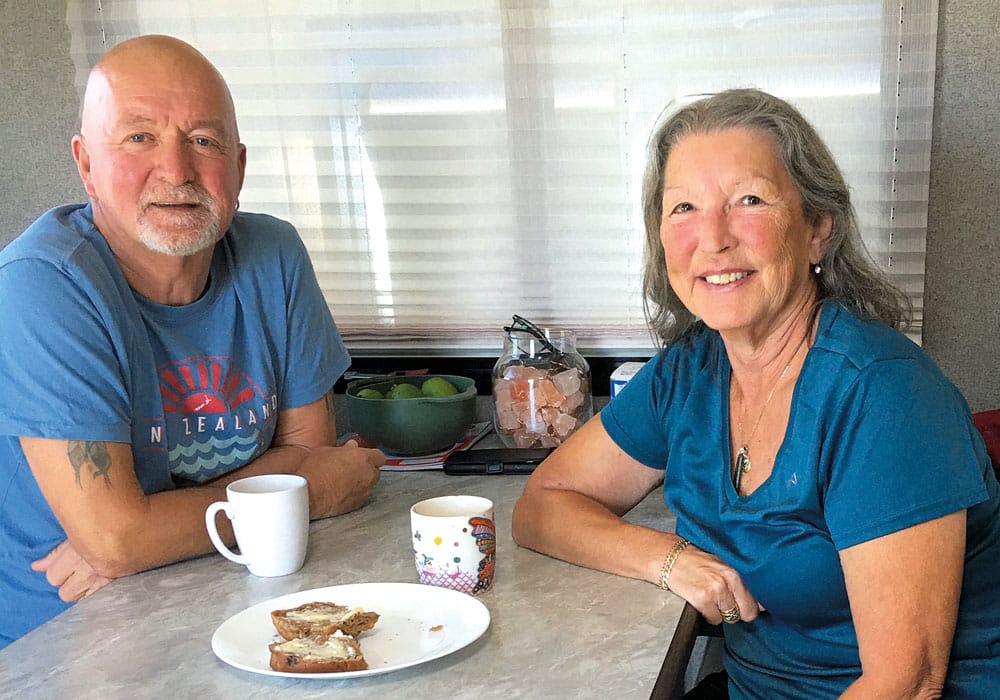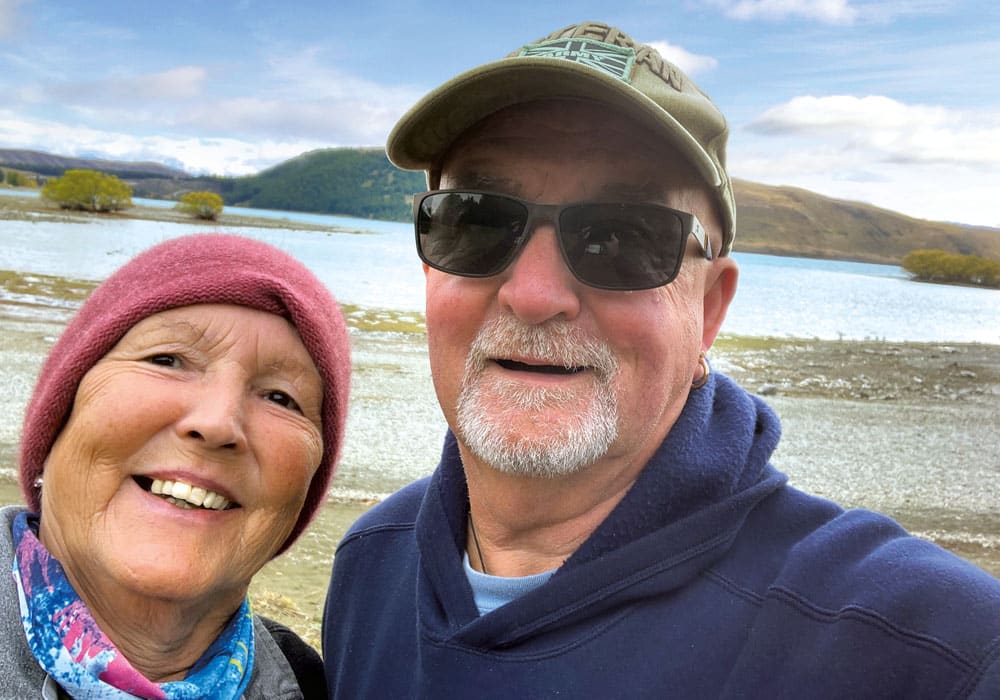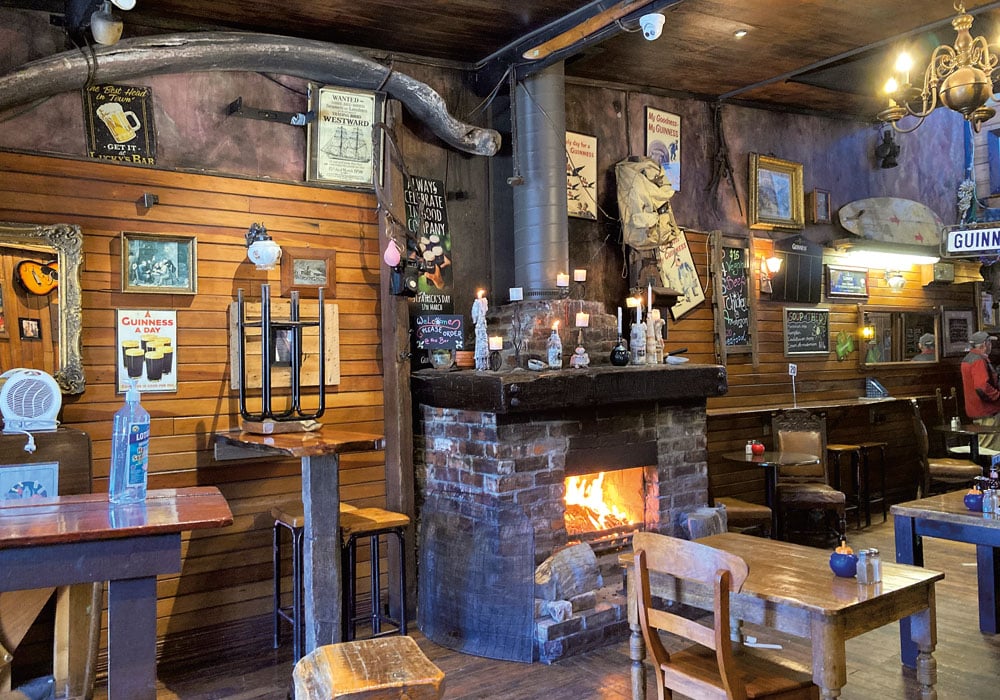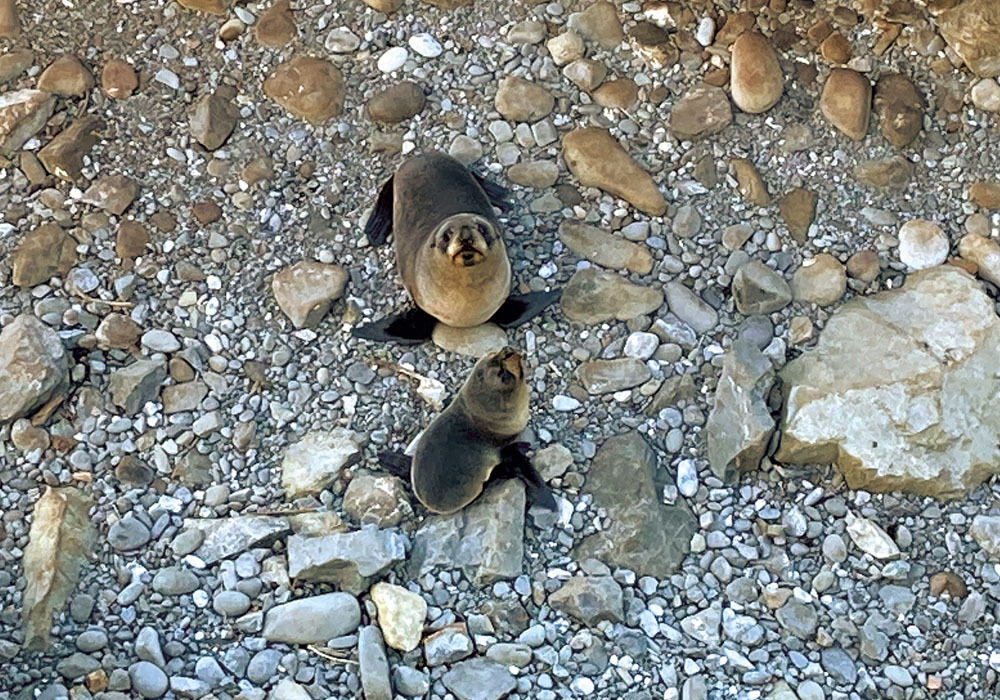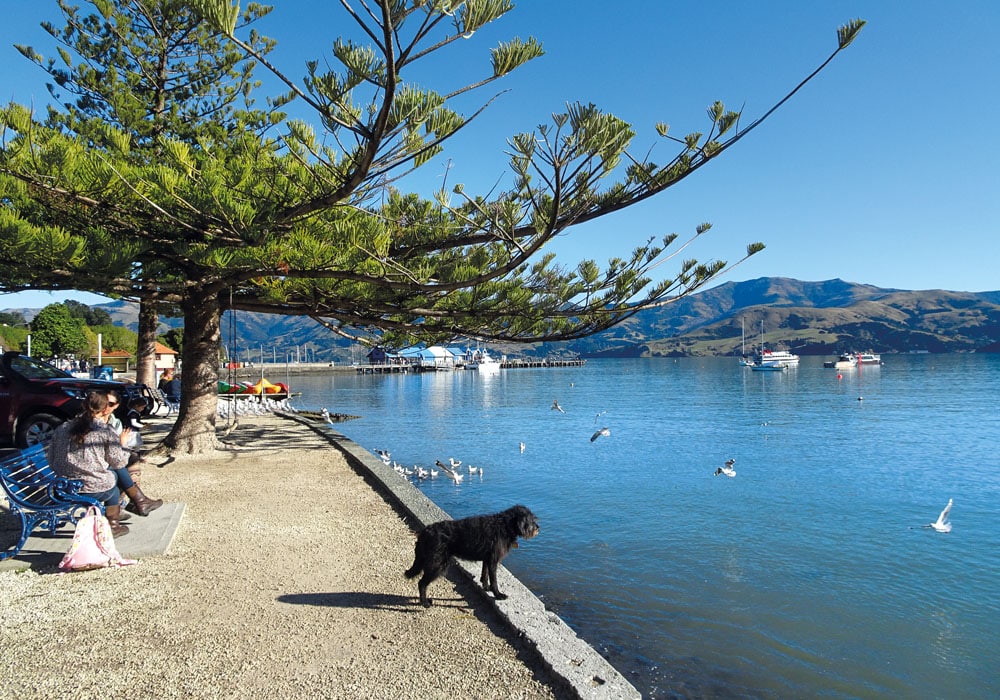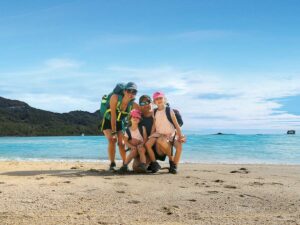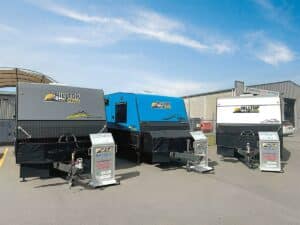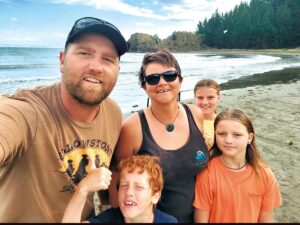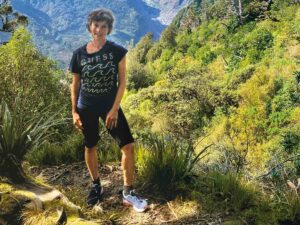Jill Malcolm revisits Owen and Elaine Smith, who 18 months ago jumped from a conventional lifestyle to living permanently in a caravan.
Elaine and Owen Smith had faced a dramatic change of lifestyle before. In England in 2003, they threw everything up in the air and emigrated to New Zealand. It was a stab in the dark, but it worked. They bought a house in Whangaparaoa with a lovely sea view and lived there happily for the next 18 years. Then when their working lives were coming to an end, they began thinking about ‘what next’.
“Earning a living had kept us pinned to a home base,” says Elaine. “The realisation that our visitors from Europe had seen much more of the country than we had, got us thinking about selling up and living permanently on the road.
“The journey began well before our wheels hit the tarmac. It took us two years of research before we bought the Ultra-Lite Forest River Rockwood 2604ws caravan, which seemed to have everything we’d need. To pull it efficiently, we chose an American Dodge Ram 1500 Express Crew Cab truck.”
But, as we all have learned, you can never really know what is around the corner in this ever-changing world, and things, at first, did not go quite according to plan.
When I first met Elaine and Owen in late March 2021, they had recently moved into their forever home and taken delivery of the grunty Ram utility. They were parked up on a friend’s farm at Waitoki, awaiting a hardtop canopy that they’d ordered for the back of the ute to give them more undercover storage.
The waiting game
It took another five months for the canopy to arrive, and during the wait, they cut their teeth on a ten-day golfing safari, and an extended trip to the Coromandel. Then in February came a two-month Covid lockdown. It was bad luck that before the canopy arrived, they were caught up again in the next lockdown (17 August to 15 December 2021), but the good luck was that they were able to sit it out parked up on the Waitoki farm. They filled the time by painting some of the interiors of the caravan. The kitchen now has a fresh green hue, offset by cream cupboard doors, and the bedroom and bathroom are painted a silvery grey.
“When we finished, we felt we’d really made the Rockwood ours,” says Elaine.
Finally, on 16 December 2021, the day after lockdown ended, the couple hit the road for real. They had been in their new wheel estate for nearly a year. The first port of call was to Waikato Bedding in Hamilton to pick up the new mattress they had ordered, and then they headed south.
The learning curve
“At that stage, we were more relaxed about handling life in a large moving house,” says Owen. “It was a huge learning curve. Anyone who thinks you can just jump into a caravan of this size, and drive off into the sunset, is dreaming. And yet we have come across at least two couples who did just that and were in trouble because they hadn’t done their research and didn’t know what they were doing. That can be dangerous in any RV.”
Elaine and Owen have now been on the road for eight months and say they are still learning about what to do and what not to do. “We have pink jobs and blue jobs for which each of us are responsible,” says Elaine. “Then I check the blue jobs and Owen checks the pink jobs. We are getting very good at this! “However, there have been some lessons to learn, such as the time we took off down the road with one slide-out extended. We won’t be doing that again.”
The couple belong to the Kiwi House Sitters Group and spent a month in Ohingaiti looking after three dogs, 24 chooks and some goldfish. Some weeks later, after making their way down the North Island, they headed to the South Island, crossing over on the ferry without incident.
“I imagine some people could find loading a big rig onto a ship a bit daunting,” says Owen, “but I have licences 1,2,3,4 and 5 and I don’t have any qualms about driving or parking. I’m able to drive a logging truck or a forklift if I want to. It helps that I’d had experience in the Transport Corp when I was in the British Army.”
Travelling with the ‘fivers’
Soon after they hit the South Island, they joined with other members of American Fifth Wheeler and Travel Trailer Group who were off on an ‘American Road Rumble’. “We are not ‘fivers’ but the Rockwood is certainly American,” says Owen. “We spent ten days touring with these people who, apart from their friendly companionship, were extremely knowledgeable about American RVs and added greatly to our understanding. We were very grateful for this. One thing
I now know is that we will keep learning forever,” he says.
“Our ten-metre Rockwood was one of the smaller RVs in the group. Some of the fifth wheelers are like large mobile apartments. I guess a few would have been around 12.5 metres in length. If they were pulled by something like a DAF tractor unit, the whole rig would end up being around twenty metres long.”
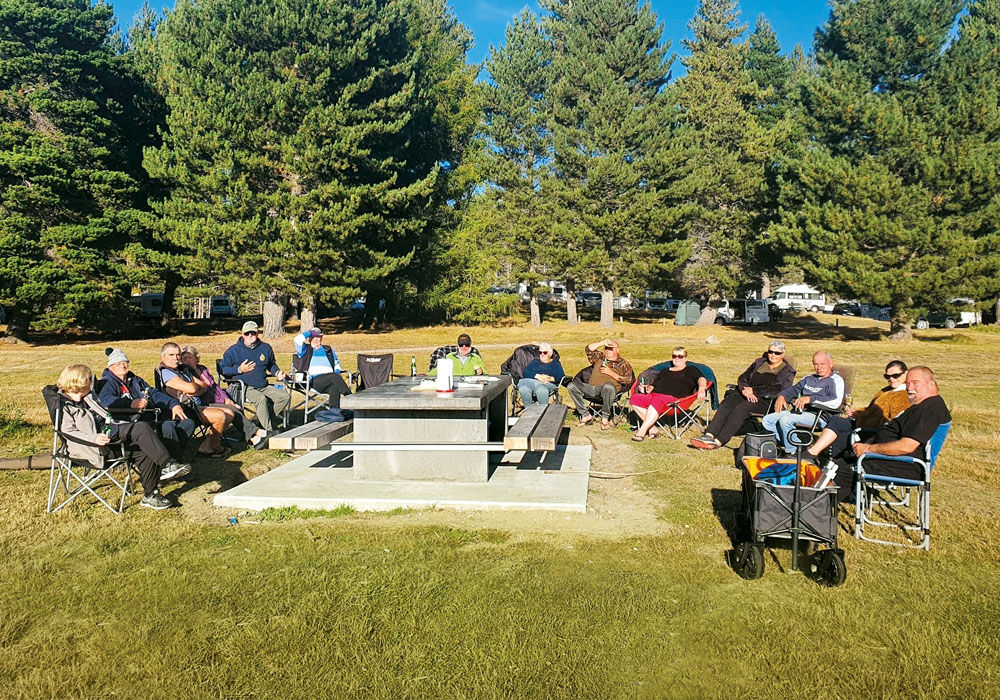
Having a large caravan does dictate where the Smiths can park. They haven’t done much freedom camping, preferring to stay at POPs, NZMCA camps and occasionally pubs. DOC camps can be a bit problematic because of the caravan’s length. At all the places they have camped and the places they have visited, however, they have found people to be incredibly inclusive and friendly.
“We love discovering new places,” says Elaine. “Our favourites to date are Christchurch, with its murals and stunning new buildings; Akaroa, which we found very quaint; Kaikōura where, although it’s a bit touristy, there were more seals than tourists! We also love the spaciousness and parks of Ashburton, the old quarter of Cromwell, and the buildings and penguins at Oamaru.”
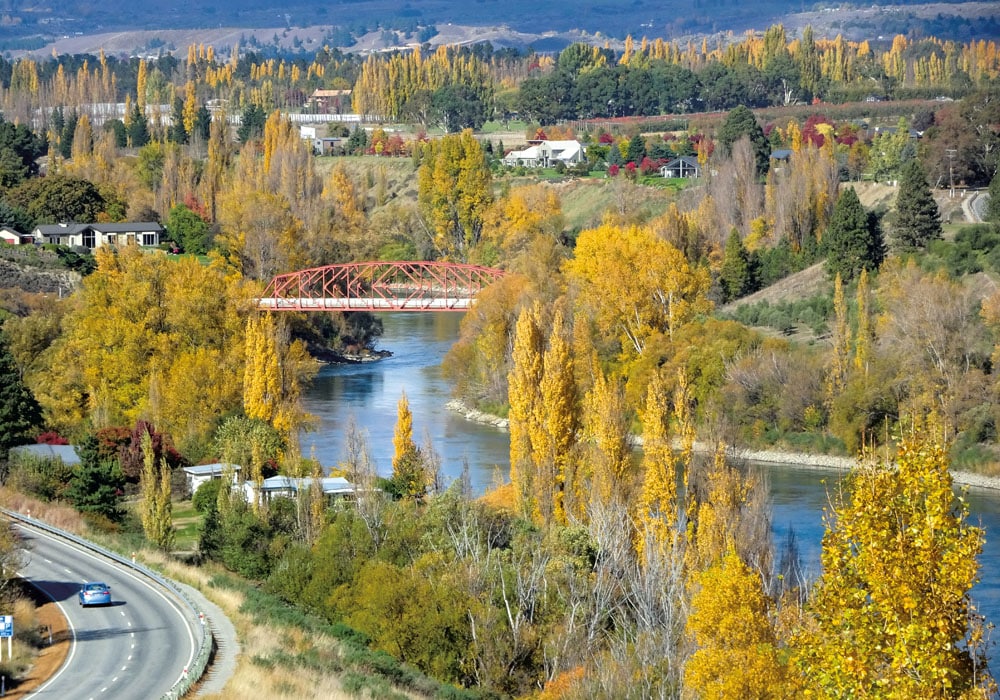
A new hobby
It’s not just new places that the Smiths have discovered since hitting the road; they have also become enthusiastic geocashers. I’d never heard of such a thing.
“It’s is a sort of high-tech treasure hunt,” Owen explains. Geocaches comprise small log books, paper or items placed inside waterproof containers, which are tucked away somewhere in outdoor nooks and crannies. The details of their whereabouts and their coordinates are logged on a geocaching website. When a snooping geocacher finds one, he/she signs the log book and records the find on the website. This extraordinary hobby is more popular than McDonalds. There are half a million geocaches in 100 countries around the world in locations that range from urban suburbs to mountain tops.
Although geocaching can be vexing at times, the Smiths say they’ve had very few frustrations in their new home.
“The only one I can really think of is the oven,” Elaine says. “I’m an ex-chef and the oven has only two settings – on and off. I’ve got around this by mostly using
a thermal cooker [a Quarter Acre Pot]. To begin with, I worried a little about the much smaller size of kitchen than the one I was used to, but we have found it to be perfectly adequate for our needs. On the road, we eat just as well as we did in our old lifestyle.”
Elaine and Owen say they do not have one single regret about their leap into the unknown.
“We have so few responsibilities now,” says Owen happily. “If we don’t like our neighbours, we move; someone else does the gardening; if the weather packs up so do we; and our cost of living is way down on what it was. There is so little pressure on us these days, I sometimes wake up in the morning and have to think about where I am. I would really encourage anyone thinking about this life to do what we have done – just as long as they research it thoroughly first.”

